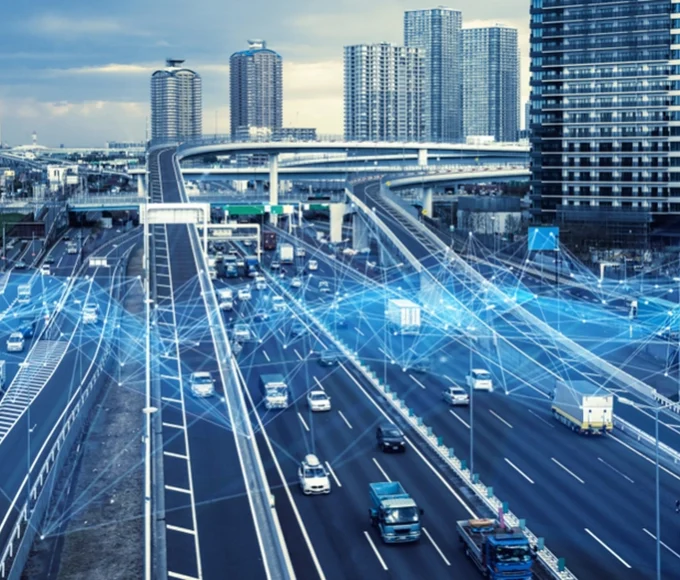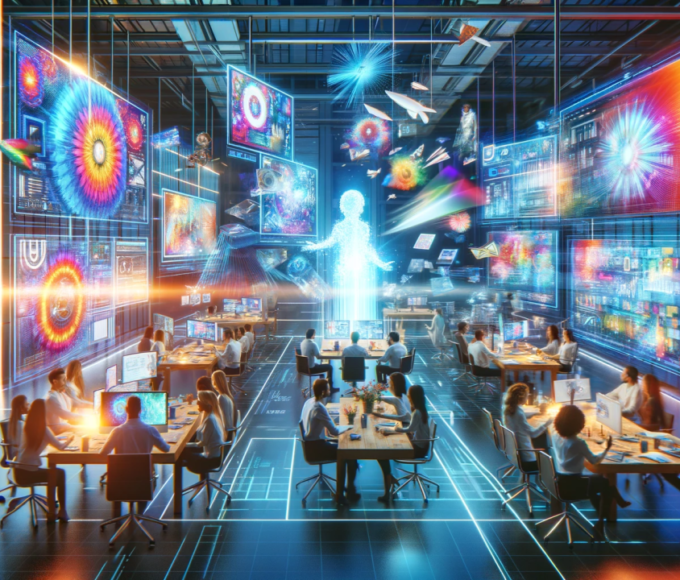Climate change is one of the most pressing challenges facing humanity in the 21st century. It poses a significant threat to ecosystems, biodiversity, and the well-being of communities worldwide. In the fight against climate change, emerging technologies, particularly Artificial Intelligence (AI), offer tremendous potential to address environmental issues and create sustainable solutions.
Understanding the Role of AI in Climate Change Mitigation
Artificial Intelligence refers to the simulation of human intelligence in machines that can analyze data, learn from it, and make decisions with minimal human intervention. When applied to the field of climate change, AI can significantly enhance our ability to gather, process, and utilize vast amounts of data related to climate patterns, emissions, and environmental changes. We can identify patterns and trends that would be difficult for human researchers to discern. It may lead to formulation of more effective strategies for climate change mitigation.
Climate Modeling and Prediction
One of the key applications of AI in climate change is climate modeling and prediction. AI-powered climate models can analyze historical data, atmospheric conditions, and various other factors to forecast future climate scenarios. These predictions can assist policymakers, businesses, and communities in making informed decisions to adapt to changing conditions and minimize the impact of extreme weather events.
Energy Efficiency and Smart Grids
AI plays a vital role in optimizing energy consumption and improving energy efficiency. Smart grids, integrated with AI algorithms, enable real-time monitoring and control of energy distribution, ensuring that electricity is used more effectively. By minimizing wastage and managing energy demand, we can significantly reduce greenhouse gas emissions and dependency on fossil fuels.
Precision Agriculture and Sustainable Practices
Agriculture is a significant contributor to greenhouse gas emissions, but AI offers solutions to make this industry more sustainable. Precision agriculture, which utilizes AI-powered sensors and data analysis, allows farmers to optimize irrigation, fertilizer use, and pest control. By reducing resource waste and maximizing crop yields, precision agriculture helps limit deforestation for agricultural expansion and reduces the overall carbon footprint of the agricultural sector.
Climate Change Adaptation
Adapting to the effects of climate change is crucial for vulnerable communities and ecosystems. AI-driven technologies can identify areas at higher risk of extreme events like floods, droughts etc. by historical records. By understanding these risks, policymakers and communities can develop more effective adaptation strategies aimpacts of climate change.
Conservation and Biodiversity Protection
Biodiversity loss is another significant consequence of climate change, threatening numerous species and ecosystems. AI can aid in monitoring and protecting biodiversity by analysing vast amounts of data from satellites, drones, and sensors. This technology enables real-time monitoring of ecosystems, identification of illegal activities like poaching and deforestation. It also helps conservationists make informed decisions to safeguard our planet’s rich biodiversity.
Climate Finance and Investment Decisions
AI-powered algorithms can assist in climate finance and investment decisions. Investors can make more informed choices that align with climate change mitigation goals by analysing data. AI can help identify financially viable projects with a positive environmental impact, driving the shift towards a low-carbon economy.
Startups in the domain:
Blue Sky Analytics: The company provides global data solutions across multiple environmental indicators such as GHG and carbon emissions etc. This data could be used for a variety of purposes, such as monitoring and quantifying physical climate risks of various assets, computing climate VaR etc.
SatSure: It leverages satellite remote sensing data, machine learning, and big data analytics to solve large-scale issues in the fields of agriculture, banking and finance, infrastructure, and climate change mitigation.
Overcoming Challenges and Ensuring Ethical AI
While AI presents immense opportunities for tackling climate change, there are challenges that need to be addressed. Data privacy, security, and potential biases in AI algorithms are concerns that demand careful attention. To gain public trust and ensure the responsible utilization of AI technologies for environmental solutions, there must be assurance of transparency and ethical practices in AI development.
The battle against climate change requires a multi-faceted approach, and emerging technologies like AI are invaluable assets in this fight. By harnessing AI for climate modeling, we can accelerate the transition to a more sustainable and resilient future. However, it is crucial to remain vigilant about the ethical implications and potential risks of AI, ensuring that the technology is utilized in a manner that benefits both humanity and the environment.
With collaborative efforts, the fusion of AI and climate change mitigation can lead us towards a greener and more sustainable planet for generations to come.
















%s Comment